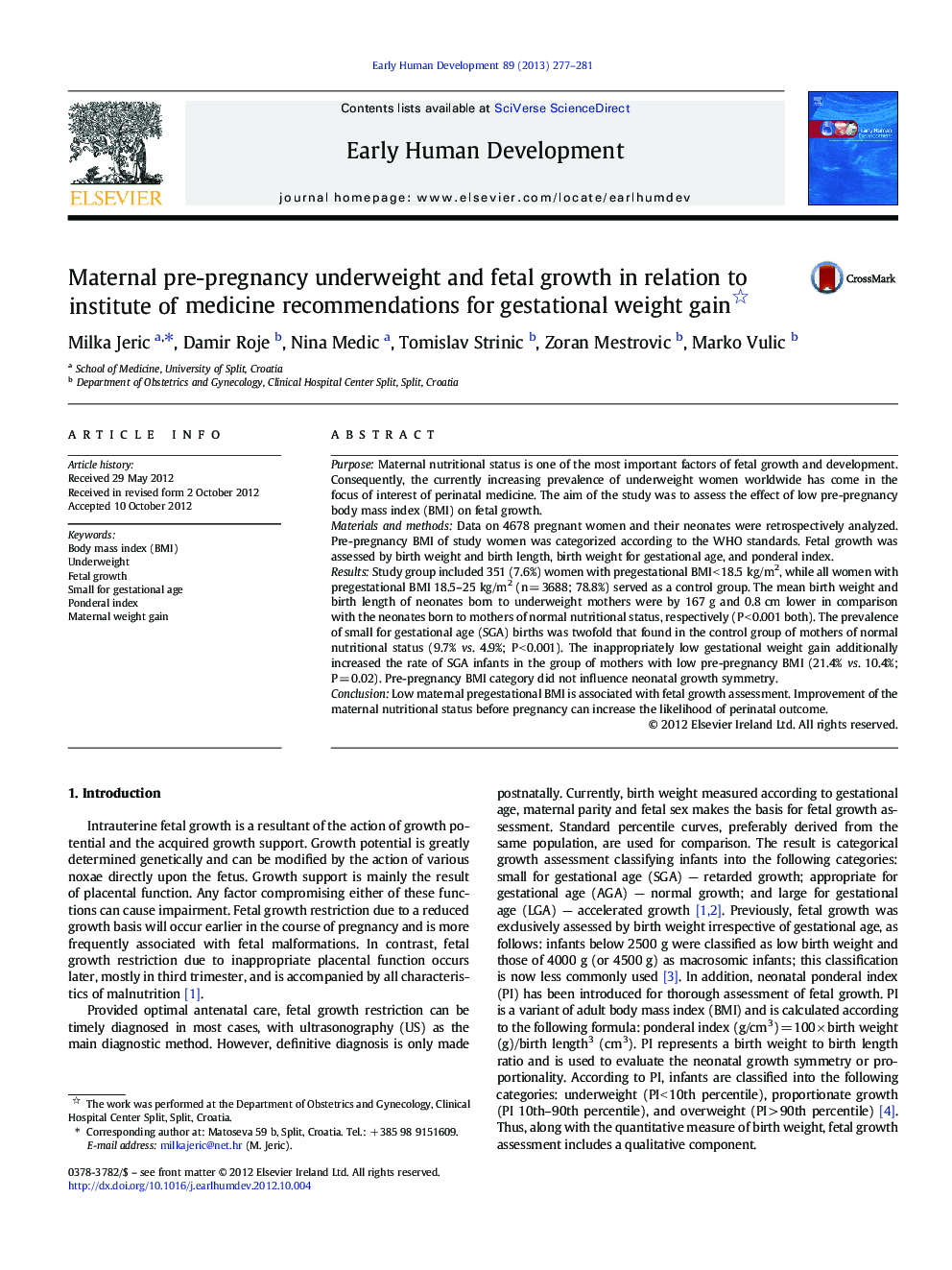| Article ID | Journal | Published Year | Pages | File Type |
|---|---|---|---|---|
| 6171995 | Early Human Development | 2013 | 5 Pages |
PurposeMaternal nutritional status is one of the most important factors of fetal growth and development. Consequently, the currently increasing prevalence of underweight women worldwide has come in the focus of interest of perinatal medicine. The aim of the study was to assess the effect of low pre-pregnancy body mass index (BMI) on fetal growth.Materials and methodsData on 4678 pregnant women and their neonates were retrospectively analyzed. Pre-pregnancy BMI of study women was categorized according to the WHO standards. Fetal growth was assessed by birth weight and birth length, birth weight for gestational age, and ponderal index.ResultsStudy group included 351 (7.6%) women with pregestational BMI < 18.5 kg/m2, while all women with pregestational BMI 18.5-25 kg/m2 (n = 3688; 78.8%) served as a control group. The mean birth weight and birth length of neonates born to underweight mothers were by 167 g and 0.8 cm lower in comparison with the neonates born to mothers of normal nutritional status, respectively (P < 0.001 both). The prevalence of small for gestational age (SGA) births was twofold that found in the control group of mothers of normal nutritional status (9.7% vs. 4.9%; P < 0.001). The inappropriately low gestational weight gain additionally increased the rate of SGA infants in the group of mothers with low pre-pregnancy BMI (21.4% vs. 10.4%; P = 0.02). Pre-pregnancy BMI category did not influence neonatal growth symmetry.ConclusionLow maternal pregestational BMI is associated with fetal growth assessment. Improvement of the maternal nutritional status before pregnancy can increase the likelihood of perinatal outcome.
